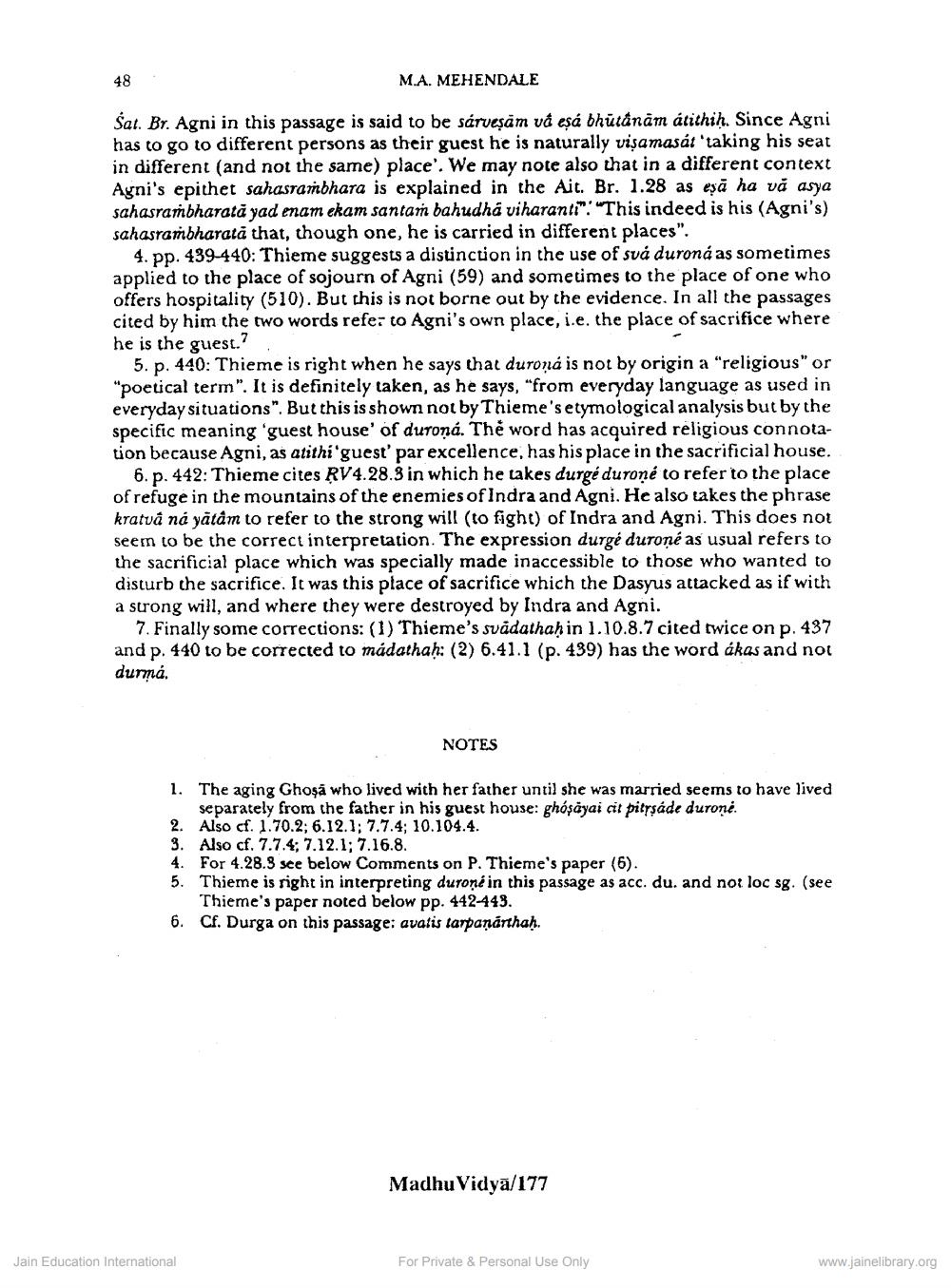________________
48
M.A. MEHENDALE
Sat. Br. Agni in this passage is said to be sárveşām va eșá bhütånām átithih. Since Agni has to go to different persons as their guest he is naturally vişamasát'taking his seat in different (and not the same) place'. We may note also that in a different context Agni's epithet sahasrambhara is explained in the Ait. Br. 1.28 as esā ha vă asya sahasrambharata yad enam ekam santan bahudhá viharanti". "This indeed is his (Agni's) sahasrambharata that, though one, he is carried in different places".
4. pp. 439 440: Thieme suggests a distinction in the use of svá duroná as sometimes applied to the place of sojourn of Agni (59) and sometimes to the place of one who offers hospitality (510). But this is not borne out by the evidence. In all the passages cited by him the two words refer to Agni's own place, i.e. the place of sacrifice where he is the guest.?
5. p. 440: Thieme is right when he says that duroņá is not by origin a "religious" or "poetical term". It is definitely taken, as he says, "from everyday language as used in everyday situations". But this is shown not by Thieme's etymological analysis but by the specific meaning 'guest house' of duroná. The word has acquired religious connotation because Agni, as atithi'guest' par excellence, has his place in the sacrificial house.
6. p. 442: Thieme cites RV4.28.3 in which he takes durgé duroné to refer to the place of refuge in the mountains of the enemies of Indra and Agni. He also takes the phrase kratvá né yātam to refer to the strong will to fight) of Indra and Agni. This does not seem to be the correct interpretation. The expression durgé durone as usual refers to the sacrificial place which was specially made inaccessible to those who wanted to disturb the sacrifice. It was this place of sacrifice which the Dasyus attacked as if with a strong will, and where they were destroyed by Indra and Agni.
7. Finally some corrections: (1) Thieme's svádathah in 1.10.8.7 cited twice on p. 437 and p. 440 to be corrected to mádathah: (2) 6.41.1 (p. 439) has the word ákas and not dumά.
NOTES
1. The aging Ghosa who lived with her father until she was married seems to have lived
separately from the father in his guest house: ghóşayai cit pitysáde durone. 2. Also cf. 1.70.2; 6.12.1; 7.7.4; 10.104.4. 3. Also cf. 7.7.4; 7.12.1; 7.16.8. 4. For 4.28.3 see below Comments on P. Thieme's paper (6). 5. Thieme is right in interpreting duroné in this passage as acc. du and not loc sg. (see
Thieme's paper noted below pp. 442-443. 6. Cf. Durga on this passage: avalis tarpanárthah.
Madhu Vidyā/177
Jain Education International
For Private & Personal Use Only
www.jainelibrary.org




